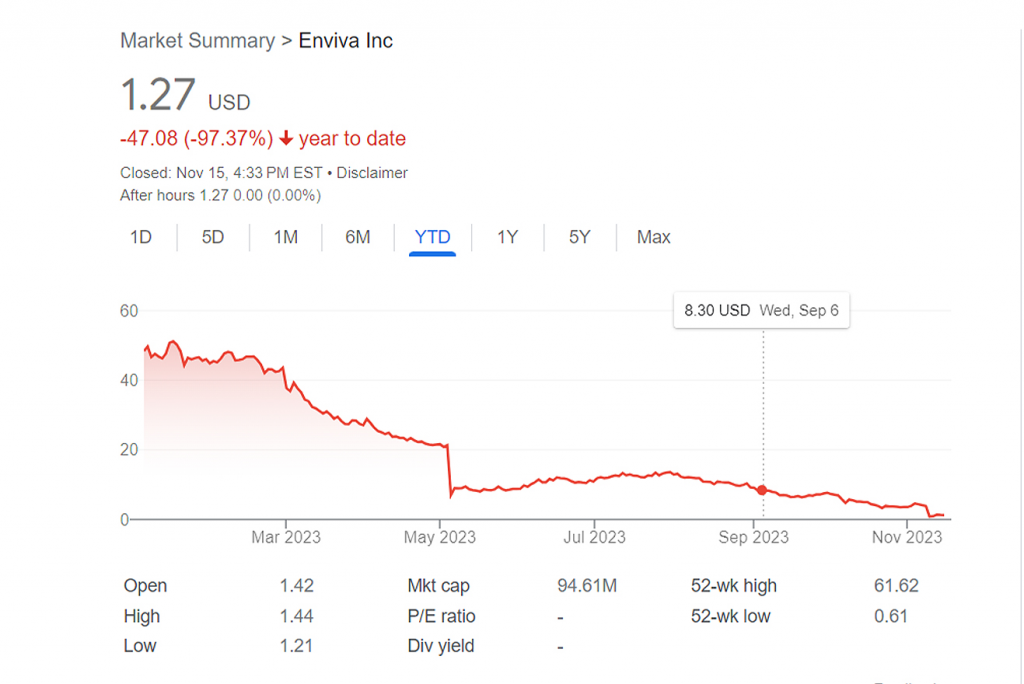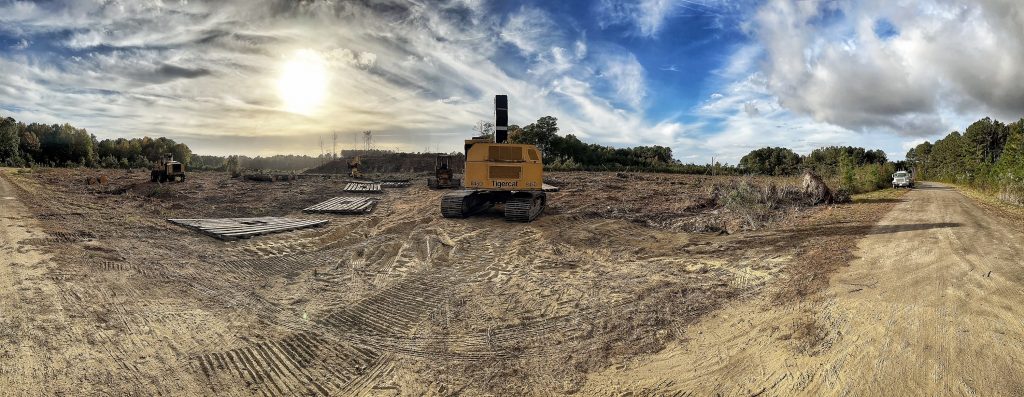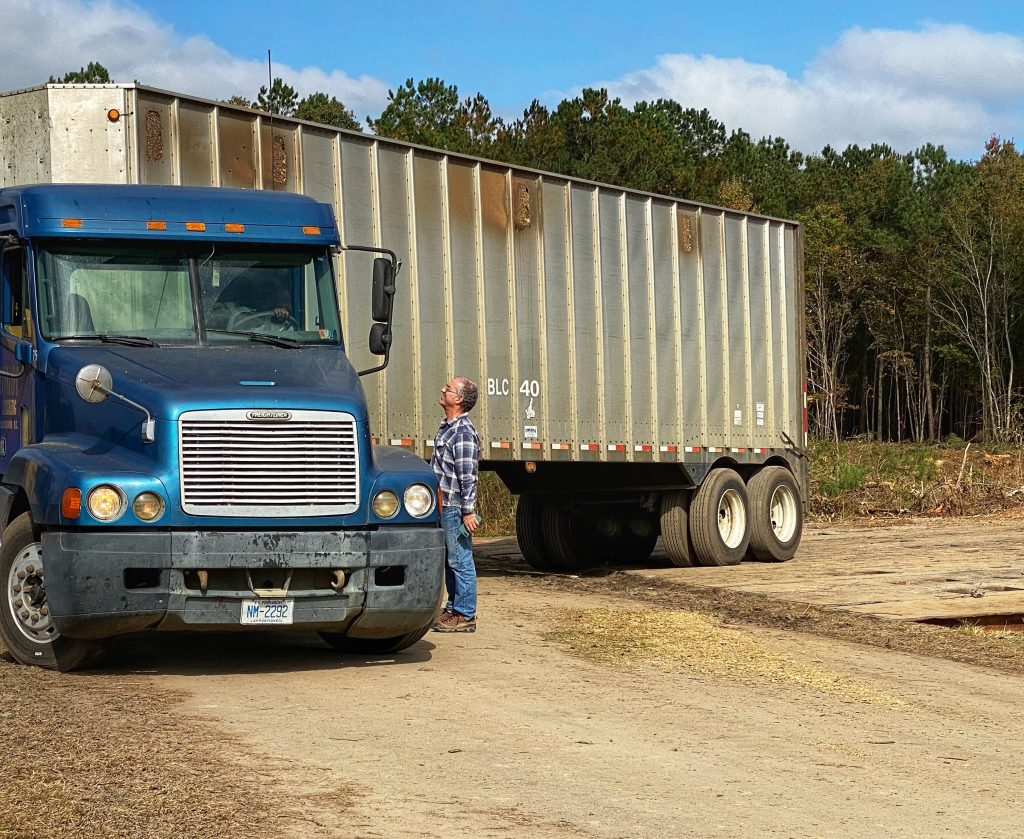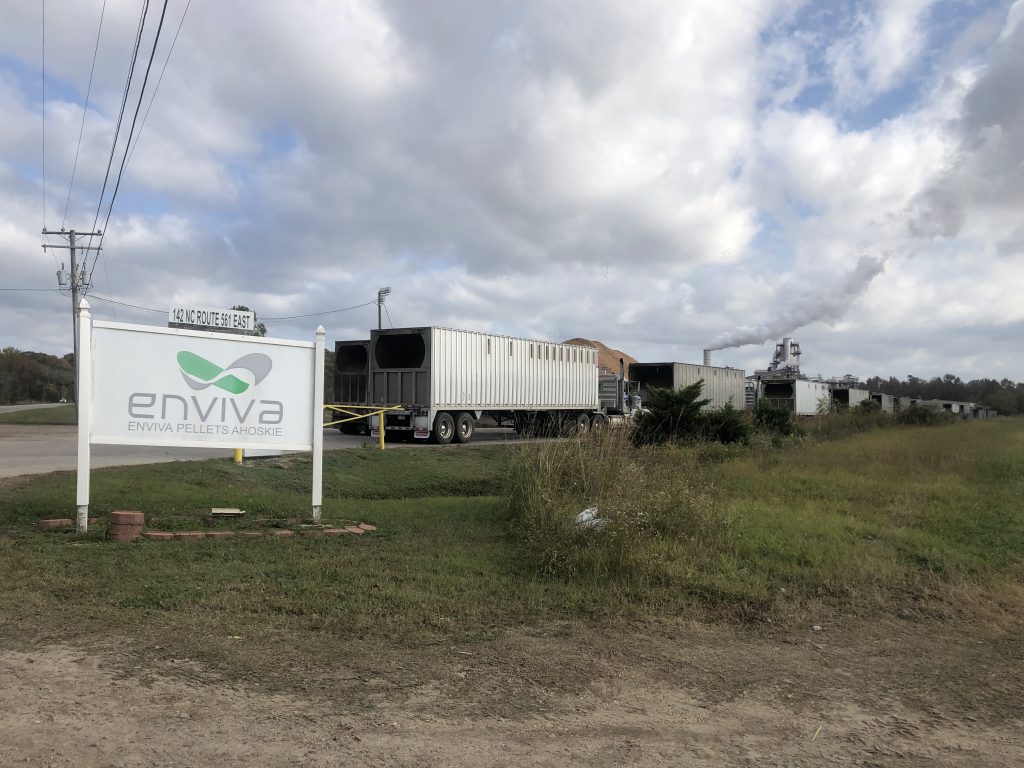
In this story, I continue my coverage of Enviva, the Maryland-based company that claims to be the world’s largest producer of wood pellets for industrial-scale energy. The pellet maker has been a dominant force in the industry in the Southeastern United States, especially my home state of North Carolina, since it opened its first pellet mill more than a decade ago. A couple of years ago, it topped $1 billion in annual revenue, its stock price rising above $87 a share. Enviva boldly planned major expansions in the Deep South and predicted pellet production to go from 6 million metric tons annually to 13 million metric tons by 2027.
That was then.
In the spring of 2024, Enviva found itself in Chapter 11 bankruptcy, having lost hundreds of millions of dollars in 2023 from a variety of circumstances — some beyond its control, many of its own making. It’s stock price is below 50 cents a share and Wall Street analysts, once bullish on forest biomass energy, are now warning investors away. This story continues my explanation of why Enviva is failing, with additional insight from an exclusive source who continues to provide an invaluable look beyond Enviva’s public statements and required disclosures as a public company.
A new angle to my coverage is how forest advocates have been shifting their attention to Washington, D.C., because of the Biden Administration’s Inflation Reduction Act and the billions provided to incentivize renewable energy. Enviva, in desperation, is eager to convince the Environmental Protection Agency and other government offices, that is produces an legit renewable energy source and climate mitigation strategy amid the climate crisis. No rigorous, independent research supports that claim in the timeframes needed to slow the rate of global warming. But Enviva is angling for millions in US tax subsidies to help it pay for new plants in Alabama and Mississippi.
As my story explains, there is a lot at stake not only in Enviva’s future as a major supplier of wood pellets to the UK and EU, but also the future of forests desperately needed to remain standing as yet our best and most effective defense against erratic weather and accelerating global warming.





